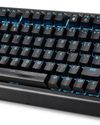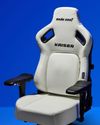
OVERCLOCKING boosts your performance, but what about your street cred? You can boast about your achievements to friends, but when you’re ready to show the world your skills, there’s competitive overclocking. Competitors enjoy a vast community online and at events worldwide. There are also prizes for winning competitions and breaking records. Competitive overclockers’ ultimate destination is HWBot, which hosts global overclocking competitions and maintains a database of world records. Place near the top of one of its ranking boards, and you’ve made it.
Sound exciting? For those new to overclocking or interested in competing, we’re here to help. Here are successful professional overclockers’ best tips for getting started.
Start with CPUs or RAM, not graphics cards. Premium graphics cards are usually more expensive than CPUs or RAM kits, so you’ll be more upset if you kill one by pushing it too hard. CPUs and RAM are also easier to overclock.
CPUs are the most popular starting point. Like other components, they also have built-in safety features, like thermal throttling, to help avoid damage from excessive voltage or inadequate cooling. In addition, keeping your CPU’s heat at bay is easier than cooling “most reference GPUs” according to Albrecht Mesotten, who’s been competing since 2009. “It’s also much easier to test stability for a CPU than for a GPU, he added.
هذه القصة مأخوذة من طبعة October 2020 من Maximum PC.
ابدأ النسخة التجريبية المجانية من Magzter GOLD لمدة 7 أيام للوصول إلى آلاف القصص المتميزة المنسقة وأكثر من 9,000 مجلة وصحيفة.
بالفعل مشترك ? تسجيل الدخول
هذه القصة مأخوذة من طبعة October 2020 من Maximum PC.
ابدأ النسخة التجريبية المجانية من Magzter GOLD لمدة 7 أيام للوصول إلى آلاف القصص المتميزة المنسقة وأكثر من 9,000 مجلة وصحيفة.
بالفعل مشترك? تسجيل الدخول

Google Gemini vs. ChatGPT
Which LLM currently holds the crown?

Frostpunk 2
Endure a blizzard of tough choices and lasting consequences in the survival city builder sequel

Elgato Facecam Neo
Always sees us in the best light but lacks focus: 8/10 boyfriend, er, camera

Elgato Wave Neo
The Kanye West of mics: Easy to get into, but a little weird

Razer BlackWidow V4 75%
Solid and compact, with hot-swappable switches

Razer Wolverine V3 Pro
Razer's pro controller is even better than Microsoft's

Acer Predator GM712
2008 called, it wants its projector back

AndaSeat Kaiser 4 XL
A chair as big and as comfortable as they come

Gigabyte F027Q2
Speed is of the essence with this OLED screen

Acer Nitro 14
AMD puts on a good show, but it still lacks punch